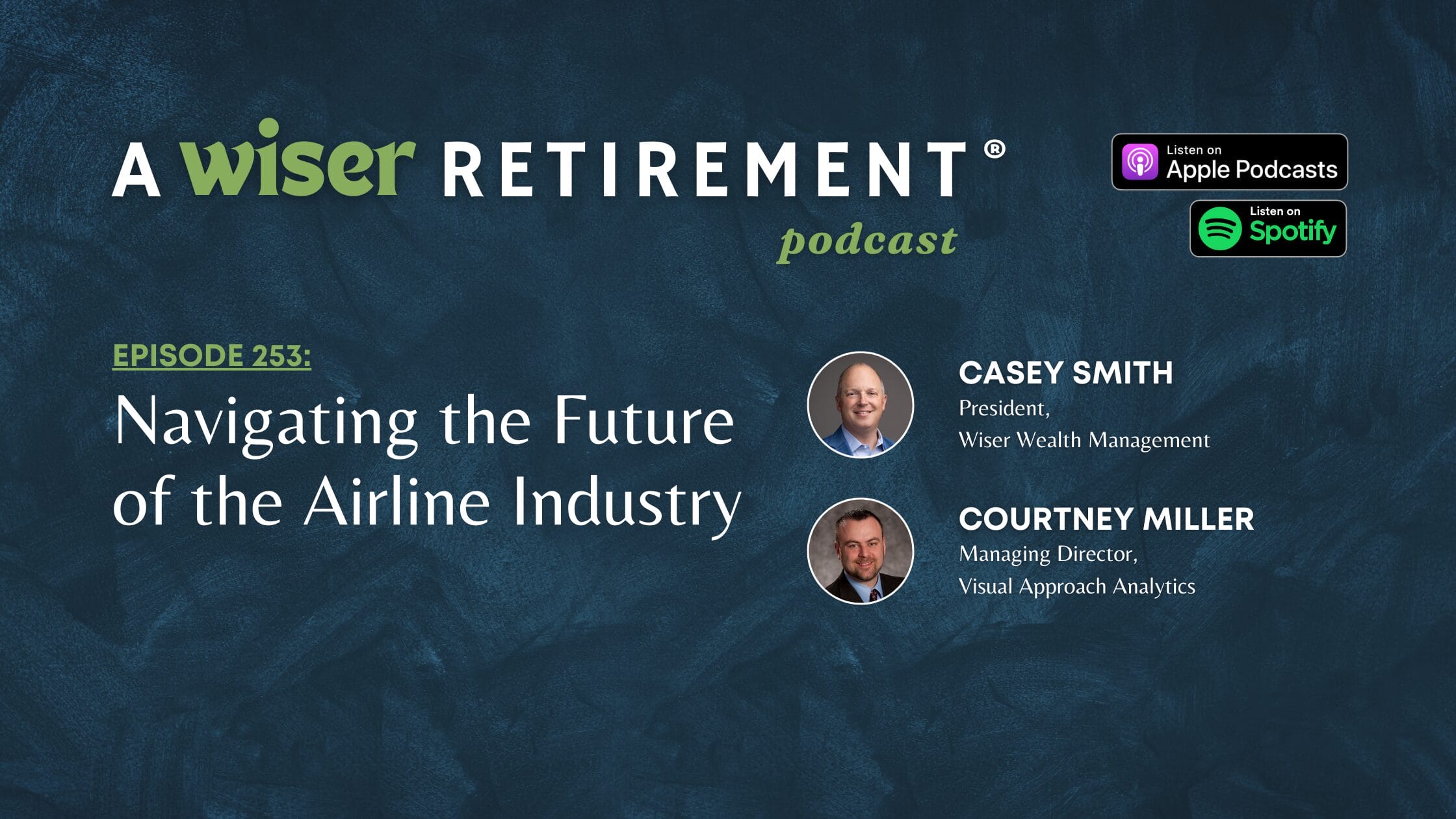
Navigating the Future of the Airline Industry
In this episode of A Wiser Retirement® Podcast, we’re joined by Courtney Miller, Managing Director at Visual Approach Analytics. Learn how airlines like Southwest and Delta tackle the challenges of fleet commonality and efficiency, and how they strategize around aircraft maintenance and technical operations. We’ll dissect the impact of COVID-19 on the aviation landscape, including the unexpected demand surge and subsequent supply chain hurdles. Discover the intricacies behind recent airline mergers and the looming pilot shortage that has left the industry grappling with its future course. We ponder the potential shift towards single-pilot operations and the critical role of maintaining a robust safety culture amid rapid advancements in technology. Whether you’re an aviation enthusiast or a commercial pilot, this episode provides insights into the aviation industry’s most pressing challenges and changes.
Listen or Watch:
Summary
Links:
- Schedule a Complimentary Consultation: Discover how our services can help you achieve financial success.
- Access Our Free Guides: Gain valuable insights on topics such as why most financial plans fail, how to leave a financial legacy, post-divorce financial planning, and more!
- Subscribe to A Wiser Retirement® YouTube Channel.
- Listen to A Wiser Retirement® Podcast and access previous episodes.
Connect:
Share This Story, Choose Your Platform!
Wiser Wealth Management, Inc (“Wiser Wealth”) is a registered investment adviser with the U.S. Securities and Exchange Commission (SEC). As a registered investment adviser, Wiser Wealth and its employees are subject to various rules, filings, and requirements. You can visit the SEC’s website here to obtain further information on our firm or investment adviser’s registration.
Wiser Wealth’s website provides general information regarding our business along with access to additional investment related information, various financial calculators, and external / third party links. Material presented on this website is believed to be from reliable sources and is meant for informational purposes only. Wiser Wealth does not endorse or accept responsibility for the content of any third-party website and is not affiliated with any third-party website or social media page. Wiser Wealth does not expressly or implicitly adopt or endorse any of the expressions, opinions or content posted by third party websites or on social media pages. While Wiser Wealth uses reasonable efforts to obtain information from sources it believes to be reliable, we make no representation that the information or opinions contained in our publications are accurate, reliable, or complete.
To the extent that you utilize any financial calculators or links in our website, you acknowledge and understand that the information provided to you should not be construed as personal investment advice from Wiser Wealth or any of its investment professionals. Advice provided by Wiser Wealth is given only within the context of our contractual agreement with the client. Wiser Wealth does not offer legal, accounting or tax advice. Consult your own attorney, accountant, and other professionals for these services.





